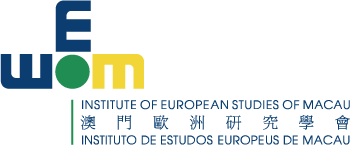Mario TelòUniversity/ Institution Université Libre de Bruxelles Institut D'Etudes Européennes BRUSSELS Expertise:Political Science and European Integration
Francis G. SnyderUniversity/ Institution Université d'Aix-Marseille III, France Expertise: European Union Law
Manuel PortoUniversity/ Institution University of Coimbra Expertise:Law
Thomas MeyerUniversity/ Institution University of Dortmund Expertise:Political Science, Philosophy and German Literature
Francesco PassarelliBiographical Information
Hendrik Willem HouwelingUniversity/ Institution University of Amsterdam Department of Political Science AMSTERDAM - The Netherlands Expertise:Political Sciences and International Relations
Franco BruniUniversity/ Institution Universitá 'Luigi Bocconi' Istituto di Economia Politica MILAN - Italy Expertise: International monetary theory and policy, Central Banking, Financial Regulation, EMU
Jorge de Carvalho AlvesUniversity/ Institution Universidade de Aveiro, Portugal Expertise: Information Technology


